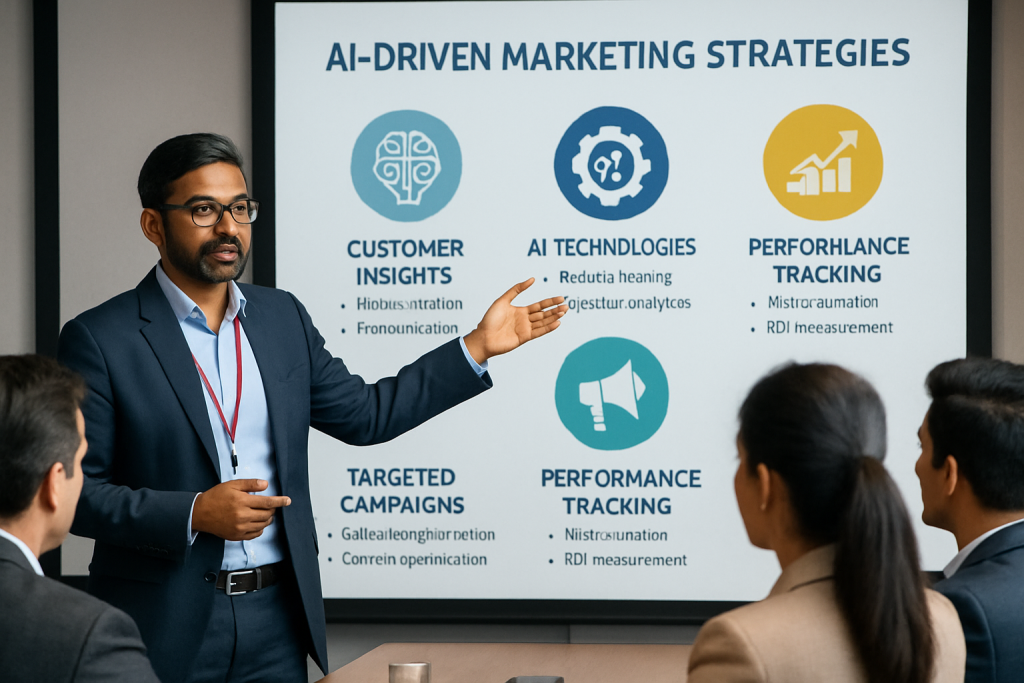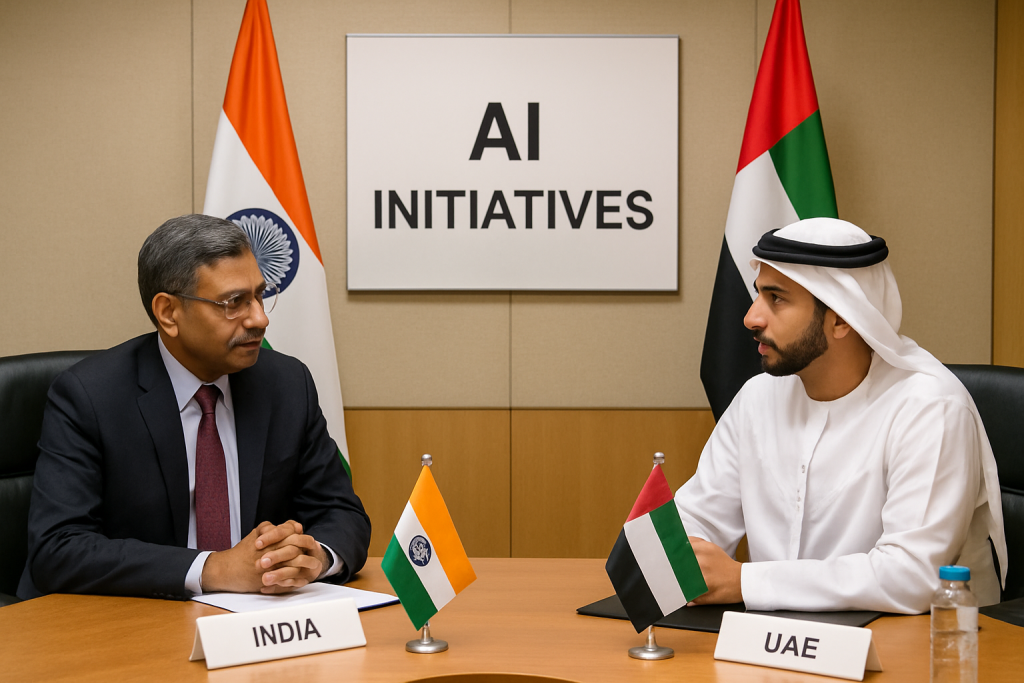The University of Kashmir has signed a groundbreaking partnership with Intel India, launching two specialized courses that position the institution at the forefront of India’s AI education revolution. The collaboration introduces ‘AI for Agriculture’ and ‘AI for Future Workforce’ programs, backed by a new AI Skill Lab that promises to reshape how students tackle global business challenges.
This strategic alliance, formalized through a Memorandum of Understanding, represents more than academic expansion. It signals Intel’s commitment to building India’s AI talent pipeline while addressing critical sectors like agriculture and workforce development through practical, hands-on training.
Why This Matters for Global Business
The timing of this partnership reflects urgent market realities. As businesses worldwide grapple with AI integration challenges, the demand for skilled professionals has reached record levels. Intel’s Digital Readiness Program addresses this gap by training students to deploy AI solutions for real-world problems, from sustainable farming to industrial automation.
Prof. Nilofer Khan, Vice-Chancellor of University of Kashmir, emphasized the global implications: “This collaboration will help our students engage with new-age technologies, create socially impactful solutions, and make meaningful contributions to sectors like agriculture, workforce development, and engineering.”
The initiative specifically targets food security and farming modernization – sectors where AI adoption could boost productivity by up to 30% according to industry estimates. For multinational corporations operating in emerging markets, this represents a critical talent development opportunity.
Strategic Market Impact
Ms. Shatarupa Dasgupta, National Program Manager at Intel’s Digital Readiness Program, highlighted the ethical AI focus that distinguishes this collaboration. The emphasis on responsible AI development addresses growing corporate concerns about AI governance and regulatory compliance.
The partnership’s structure offers several competitive advantages:
- Hands-on training through dedicated AI Skill Lab facilities
- Focus on practical applications in agriculture and workforce development
- Integration with Intel’s broader Digital Readiness ecosystem
- Direct connection between academic research and industry needs
Prof. Aijaz Ahmad Wani, Head of the Department of Botany, noted AI’s critical role in ensuring food security and combating hunger. This agricultural focus positions graduates to serve the growing agtech sector, where global investment has surged to over $8 billion annually.
What Business Leaders Should Watch
The Kashmir University model demonstrates how strategic academia-industry partnerships can accelerate AI talent development while addressing specific market needs. Companies seeking AI-ready talent should monitor similar initiatives across emerging markets.
Prof. Naseer Iqbal, University Registrar, emphasized the employment readiness angle: these courses ensure students “stay competitive in an evolving job market” with cutting-edge digital competencies.
For businesses struggling with AI talent shortages, such programs represent future hiring pipelines.
The collaborative approach extends beyond basic AI training. Prof. Mohammad Tariq Banday, Director of IoT Zakura Campus, highlighted how AI integration in engineering courses helps students develop innovative approaches to technological challenges and industrial applications.
Scaling Beyond Kashmir
The partnership’s broader implications emerged during the MoU signing at India Habitat Centre, New Delhi. Government officials, including Secretary of Higher Education K Sanjay Murthy, participated alongside Intel leadership, signaling policy-level support for AI education scaling.
Prof. Naseer Iqbal emphasized capacity building requirements: “Digital transformation first requires capacity building of public sector leaders and the current workforce working on policy development and implementation.”
This recognition positions the partnership as a template for national AI workforce development.
Intel India and University of Kashmir are actively developing strategies for program scalability. The objective focuses on bringing together stakeholders to leverage AI for improving employability, encouraging innovation, and supporting skilled workforce development on a large scale.
Risks and Considerations
While the partnership offers significant opportunities, potential challenges include ensuring ethical AI implementation and maintaining quality as programs scale. The emphasis on responsible AI development addresses these concerns proactively.
The success depends heavily on industry alignment and job market demand. Companies must actively engage with such programs to ensure curriculum relevance and graduate placement opportunities.
Global Implications
This partnership reflects broader trends in AI education and workforce development. As countries compete for AI leadership, strategic university-industry collaborations become critical competitive advantages.
For multinational corporations, partnerships like this represent opportunities to influence talent development while accessing emerging market expertise. The agricultural focus particularly benefits companies operating in food security and sustainable farming sectors.
The initiative’s success could inspire similar collaborations across India and other emerging markets, potentially reshaping global AI talent distribution patterns.
Business leaders should view this development as part of a larger shift toward practical, industry-aligned AI education. Companies that engage early with such programs position themselves advantageously for future talent acquisition and market expansion.
What’s your take on academia-industry AI partnerships? Will they bridge the global AI skills gap effectively?


